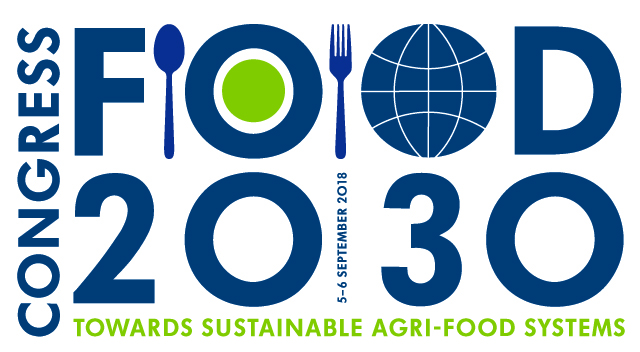Welcome to the
Congress FOOD 2030: Towards sustainable agri-food systems
5-6 September 2018, University of Hohenheim, Stuttgart, Germany
The Congress FOOD 2030: Towards sustainable agri-food systems will be held on 5-6 September 2018, as one of the major events to mark the 200th anniversary of the University of Hohenheim, Stuttgart. It will bring together experts, researchers and stakeholders from various disciplines with diverse experiences related to food systems.
It wants to contribute to solutions to the urgent challenges of the Agenda 2030, i.e. to end hunger, achieve food and nutrition security, and promote sustainable agriculture as formulated in the Sustainable Development Goal #2. Interconnected pressures from natural resource scarcity, climate change and population growth, systems of production and consumption in Europe and globally need fundamental changes. The call for concerted action and meaningful partnerships to address these challenges is greater than ever before.
The international and interdisciplinary meeting will foster discussions on innovative pathways for future food systems that are healthy, food secure, resilient and sustainable. It will also network researchers, policy makers, civil society and the private sector to facilitate exchanges and interactions in light of the upcoming 9th framework program for research of the EU.
It will focus on the following questions:
- What are new insights from current research projects?
- What are new research questions and approaches to transforming agri-food systems?
- What expectations do representatives from civil society, public and private sectors have with regard to scientific research and sustainable agri-food systems?
The German and European scientific communities, partnering researchers from Africa, Asia and Latin America; representatives from government and the media, and members of civil society organizations, advocacy groups and private enterprises are expected to attend this event. Attendance will not be restricted to these affiliations as everyone interested in the upcoming EU research program is most welcome to attend.

